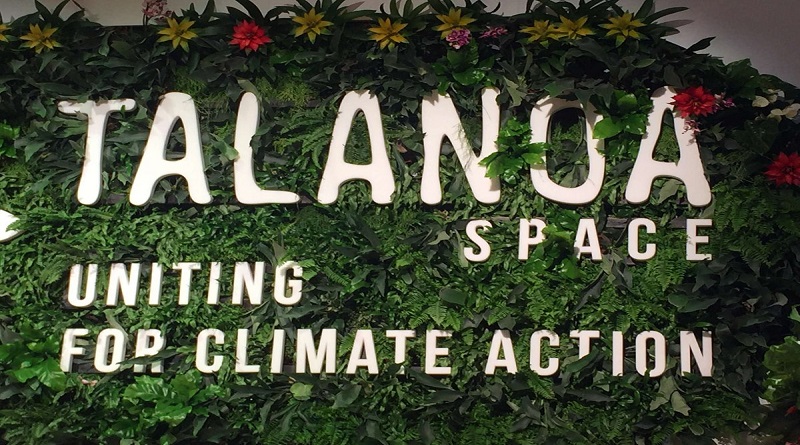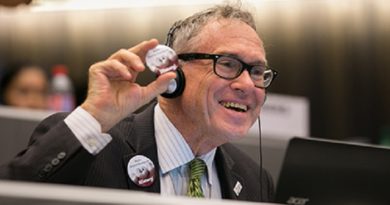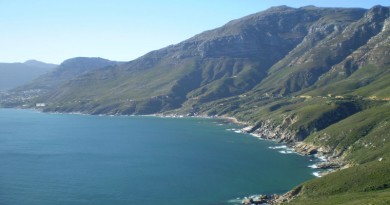Delegates call for regional climate action as Asia Pacific Climate Week closed
As the Asia Pacific Climate Week came to a close on Friday July 13, 2018, which has been showcasing groundbreaking action underway in the region to dramatically reduce greenhouse gas emissions and build resilience to the unavoidable impacts of climate change, delegates that attended the event called for a regional ‘culture change’, underpinned by a newly-energized, multi-stakeholder approach to implement of the Paris Climate Change Agreement.
All this comes amid reports from Japan of the highest death toll caused by rain in the country since 1982 – a stark reminder of the realities many nations now increasingly face.
Extreme weather events are becoming the ‘new normal’ and Ambassador Luke Daunivalu told those attending the Asia Pacific Climate Week that, “Climate change does not respect religion, race, national boundaries, or even the state of economic development.”
In this context, the Climate Week, which was hosted on Singapore’s Sentosa Island, featured a spectrum of climate solutions and important events to galvanize climate action.
Such solutions and events have the potential to turn the fortunes of the region, including the hallmark Asia Pacific Carbon Forum, a High-Level event on Financial Markets, and, by way of conclusion, a local edition of the Talanoa Dialogue on Green Financing.
The Talanoa Dialogue is an important international conversation in which countries are checking progress and seeking to increase global ambition to meet the goals of the Paris Agreement.
Speaking at the Talanoa Dialogue, Singapore’s Chief Negotiator Joseph Teo said, “Our story is that ASEAN countries and Ministers are already collaborating in many ways to meet the aims of the Paris Agreement. Yes, there is more work to be done, but there is a great willingness to work together to get the job done.”
Actors seized on the opportunity of the Climate Week to make a number of bold new announcements that, ahead of September’s Global Climate Action Summit and the UN Climate Change Conference COP24 in Katowice, Poland at the end of the year are lending credence to the idea that there is a global resolve to take ambition to the next level this year. For example:
60 businesses, making up nearly 50% of New Zealand’s emissions have joined forces to form the Climate Leaders Coalition to make their organizations compliant with the goals of the Paris Agreement.
ASEAN Smart Cities Network signed five agreements, highlighting south-south collaboration, including around the establishment of a smart energy management system.
On carbon markets, the World Bank reaffirmed that, to date, 51 carbon pricing initiatives have been implemented or are scheduled for implementation, representing a fivefold increase in the past 10 years.
Acting as the curtain-raiser to the Asia-Pacific Climate Week, High-Level Climate Champions Minister Inia Seruiratu and Tomasz Chruszczow convened an in-depth meeting of the Marrakech Partnership to forge a policy dialogue with local actors. This set the tenor for the week-long event – the primary purpose of which was to bring regional actors firmly on-board with the global agenda to enhance climate action.
“Asia is a continent that should, can and will be a hub for renewable energy, innovation and engagement of all actors for better life that change the environment. It is a continent of opportunities – climate change is a threat but acting on it is an opportunity, be it in any sector,” said Tomasz Chruszczow.
Throughout the course of the week, carbon markets formed a major part of discussions and delegates openly called for strong leadership on the issue. With signs that Singapore is already leading the charge regionally, UN Climate Change is now seeking to develop a local carbon market with comparable baselines – using Clean Development Mechanism standards — which would accelerate progress towards a global carbon price.
Elsewhere, highlights from the Climate Week included Alysha Bagasra (Ministry of Foreign Affairs & Trade, New Zealand) announcing that, “a just transition is an enabler for climate action as it gives social license to act faster,” and the High-Level Event on Finance asking financial institutions to put sustainability at the heart of their strategic planning to spur green investments and align financial markets with climate markets.
Asia Pacific Climate Week will be followed by the Latin America and Caribbean Climate Week 2018, which is being convened from 20–23 August in Montevideo, Uruguay.



